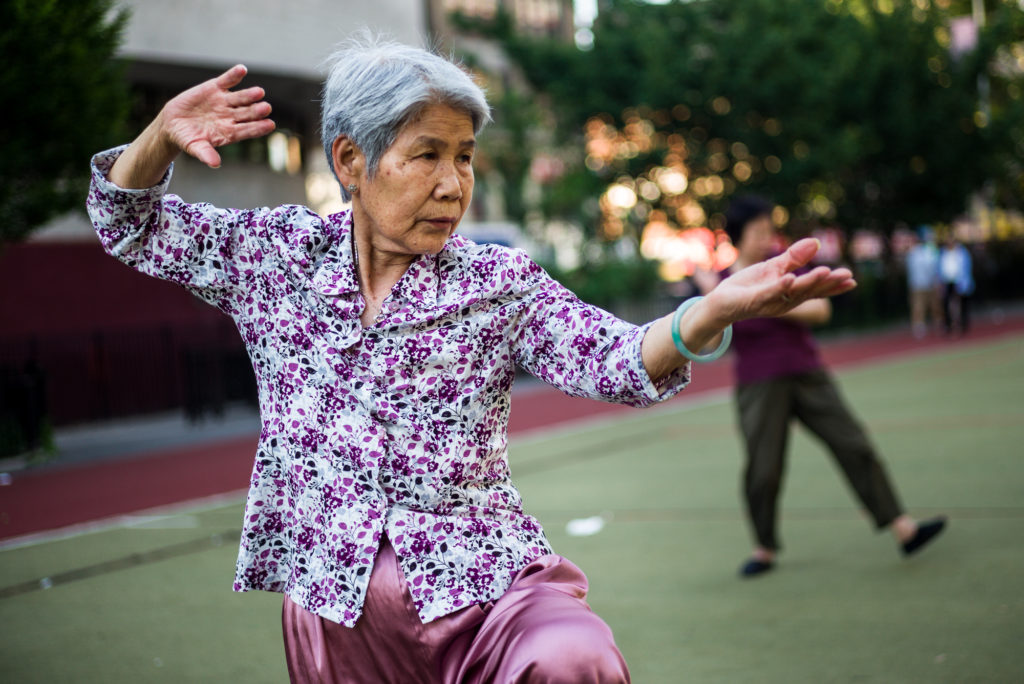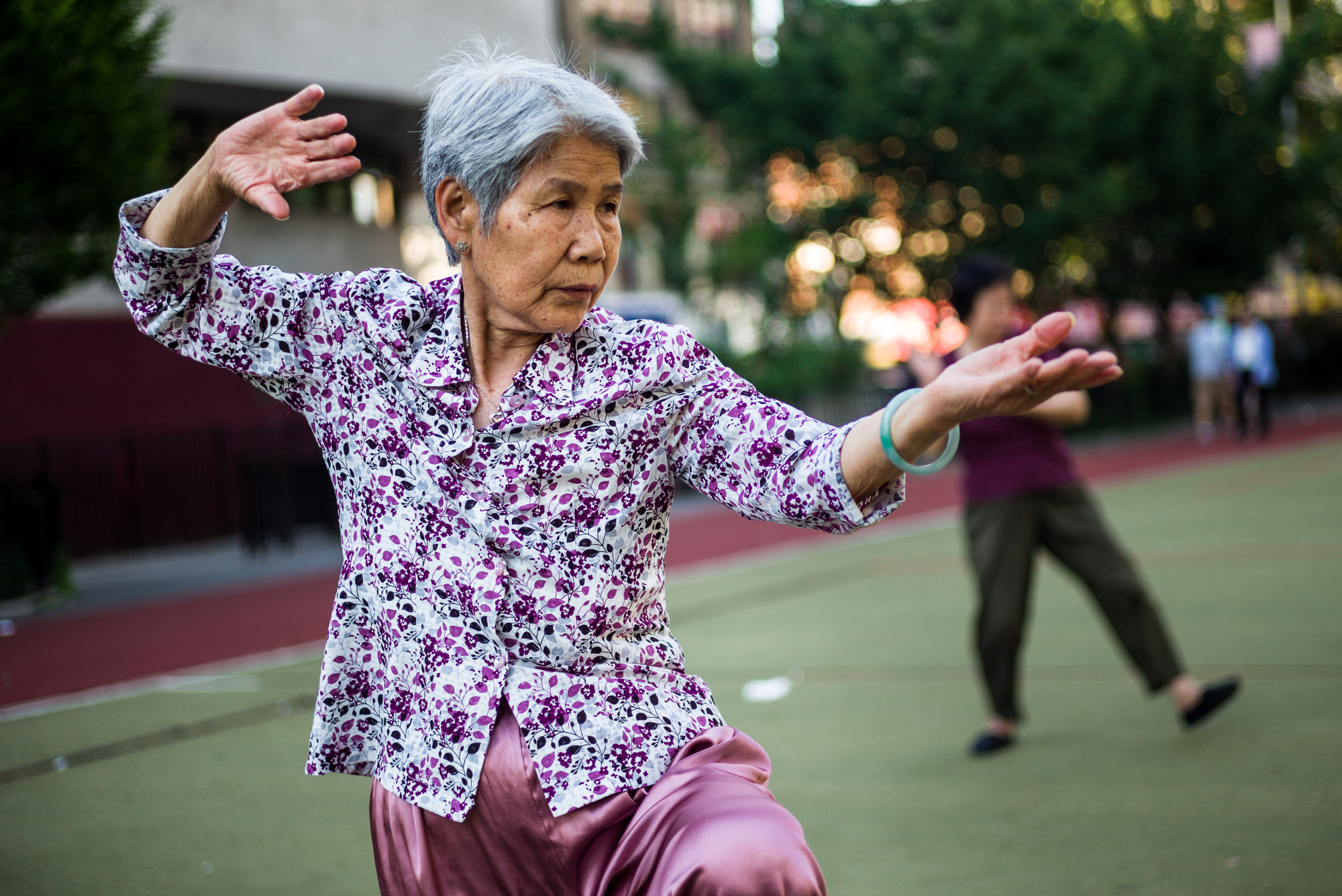by Denny Chan. This article originally appeared on the Justice in Aging blog.

Dorothy is in good spirits, but tired and growing increasingly impatient. In January – well before life for most Americans had been dramatically disrupted by COVID-19 with stay at home orders and the shut down of non-essential businesses – the 72-year-old Chinese American living in Seattle, Washington’s Chinatown began to see signs that her community’s life was slowing down. She’d been reading the daily headlines in the Chinese newspaper about the virus in Wuhan and other parts of China. But when the dim sum parlor across the street was only about a quarter full on a normally busy Saturday afternoon, and her building’s annual Lunar New Year celebration was cancelled, it all became real.
Dorothy’s story, and the stories of her community, highlight the importance of intersectionality in our response to the coronavirus. An intersectional framework considers the ways that various forms of inequity operate together, exacerbate each other, and sometimes create unique challenges. It can lead to better policies that recognize the different ways the older adults in our communities are experiencing the crisis.
During the period described above, Dorothy was heart-broken to learn that her neighbor, Mr. Zhang, had been attacked while riding a local bus. Mr. Zhang was riding the bus home after doing some errands, while wearing a face mask, not because he was sick but because he was aware of the asymptomatic nature of the virus; he wanted to protect himself and others. Several passengers on the bus began harassing him and threatening him. They told him to go back where he came from and threw garbage at him. Others in the Asian American Pacific Islander (AAPI) community have reported a surge in verbal and physical assaults in the wake of what President Trump has repeatedly labelled the “Chinese virus.”
Considering all the circumstances, Dorothy – like many of her neighbors – decided to self-quarantine beginning in early February. She stopped going to the nearby temple, and her local bakery in Chinatown has suspended business operations through the end of April. In the wake of the pandemic, AAPI seniors are experiencing unprecedented levels of loneliness and isolation. But the implications for older adults like Dorothy extend far beyond social – even the home and community-based services (HCBS) that keep her healthy and living in the community are affected. She has asked her caregiver to stop coming and avoids her local adult day health center.
Adding to her fears, getting local and accurate information about the pandemic has been difficult. Aside from her Chinese newspaper, information about the coronavirus in Dorothy’s native language has been limited, particularly local news with Washington-based resources and guidance. Many AAPI older adults across the country are language-isolated, which further debilitates their ability to fight the virus. Like many older adults, Dorothy is not on social media and does not regularly use mobile technology, so information is even more limited.
Supporting older adults who may be isolated, experiencing discrimination (or even hate crimes), who may be limited English proficient (LEP), in addition to being low-income, and whose cultural background is not reflected in the mainstream requires a comprehensive and intersectional COVID-19 response strategy. For Dorothy and other older adults in her community, such a strategy begins with acknowledging that her experiences and needs during the pandemic may look different from other older adults or other AAPI individuals, and is informed by her life at the intersection of multiple identities.
At a minimum, an intersectional response should:
- Denounce Racism. Importantly, intersectionality-informed policies identify the racism and xenophobia spurred by the coronavirus and require local, state, and federal leaders to denounce it and couple their statements with providing ample support to hate crime prevention resources. For a community that lives with the trauma from the experiences of Vincent Chin, Joseph Illeto, Navrose Mody, and others, efforts to curb hate crimes and xenophobia are crucial. In response to a problematic rise of hate crimes in the wake of the virus, the New York Attorney General created a hotline to report coronavirus hate crimes and xenophobia.
- Acknowledge Heightened Needs. COVID-19 policies must recognize Dorothy and others like her may have already started self-quarantining well in advance of any state or federal directive, and that accordingly, their needs for socialization, food security, and home and community-based services are perhaps heightened relative to those who began staying at home much later.
- Be Culturally Competent. Policies have to be created with all communities in mind. For example, even calls from our nation’s health experts to not buy and wear masks fails to recognize the ways in which such a message may be received in AAPI communities, informed by their experiences with Severe Respiratory Syndrome (SARS) less than 20 years ago. Another example of cultural competency is around food. During this outbreak, while the need for home-delivered meals to older adults has skyrocketed, it is just as important that those meals are prepared using culturally familiar ingredients and cooking methods.
- Include Outreach Strategies for Various Language and Cultures. At a minimum, intersectionality requires in-language resources to reach LEP older adults like Dorothy. In 2020, government agencies cannot rely solely on Google translate, tweets via social media, or employ a one-size-fits-all approach. Outreach to AAPI older adults and other communities must include partnerships with local community-based organizations and ethnic media who have the expertise to communicate with these populations.
For those older immigrants, language-isolated older adults or older adults of color, the harms of the coronavirus will undoubtedly be compounded. Dorothy, Mr. Zhang, and so many others like them are not adequately served by policies that only partially address their lived experiences. If they are going to survive this pandemic and in order for them and their communities to thrive, our response to the coronavirus must be intersectional.
*Dorothy and Mr. Zhang are not real people but their stories are based on real accounts from on-the-ground advocates, the media, and loved ones.
The opinions expressed in this article are those of the author and do not necessarily reflect those of the Diverse Elders Coalition.

